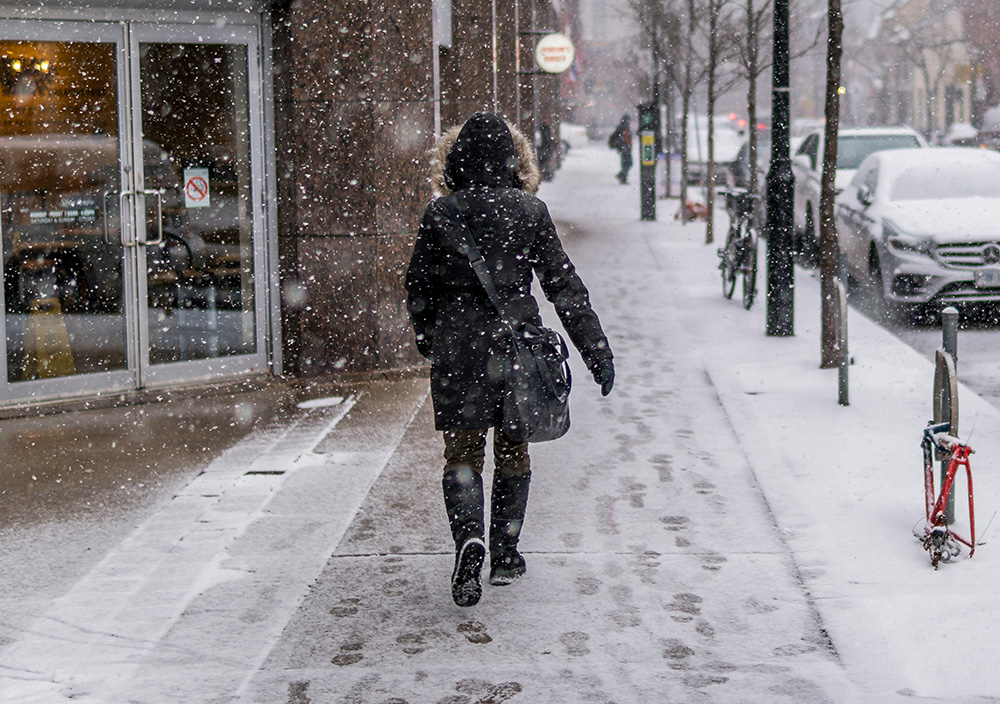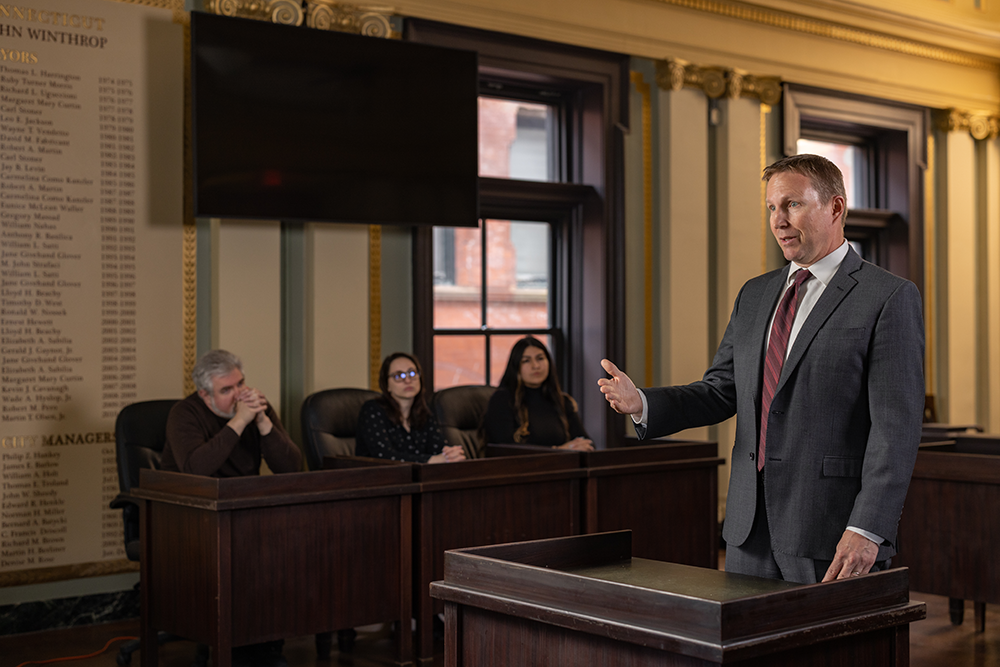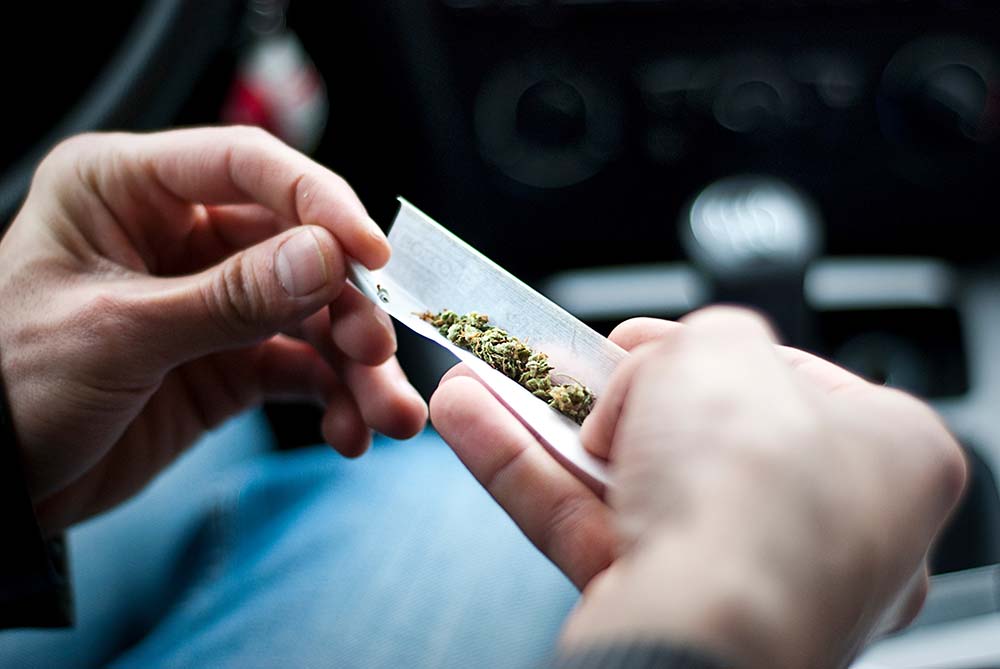
Winter weather conditions can sometimes make for a scary driving experience. Snow, ice, or slush might create slippery road surfaces, which can cause a driver to lose control of their vehicle and crash.
Icy roads can also complicate motor vehicle accident claims. If a driver collides with your vehicle on a slick road, they may argue that they are not liable for your injuries because the dangerous road conditions made the crash impossible to avoid. The condition of the road can also be a factor in determining whether a driver was at fault in an accident, and hence, whether insurance will pay for all damages caused in a crash.
The attorneys at Anderson Trial Lawyers are skilled in handling motor vehicle accident claims of all kinds, including motor vehicle accidents that occur in winter weather. Here are a few factors that commonly come up in these types of claims.
Negligent driver behavior
When you get behind the wheel, you owe a duty of care to drive responsibly — not only for your own safety but for the safety of everyone else on the road. When hazardous conditions are present, this means you must reduce your speed and otherwise use extra caution to reduce the chances of an accident.
For this reason, motor vehicle accident claims primarily focus on the behavior of each driver rather than the road conditions at the time of a crash. Drivers are expected to be aware of any hazards the weather might create — many vehicles even issue a warning that ice might be present when they are started on days with freezing temperatures — and respond accordingly.
If you are involved in an accident with another driver who was not exercising due caution at the time of the crash, they can be held liable for your injuries. Some examples of negligent behavior include:
- Driving too fast for conditions: During hazardous conditions, drivers are expected to slow down to travel at a safe speed — even if their vehicle is equipped with four-wheel drive, snow tires, or other features to help them navigate winter weather. Drivers who travel too fast for conditions may not be able to safely stop on a slippery road.
- Following too closely: Drivers must always maintain a safe following distance from the vehicle in front of them so they can stop, if necessary. During slippery conditions, drivers are expected to increase this following distance to account for reduced traction.
- Inadequate maintenance: A driver’s duty of care includes keeping their vehicle in safe working condition. Certain maintenance issues, such as tires and brakes, will make it more difficult for a driver to operate their vehicle and avoid a crash in icy conditions.
- Failing to take other precautions: A driver might be held liable if they do not take other proper precautions in poor weather conditions, such as using their headlights during low visibility conditions and clearing their windshield of snow and ice.
Factors that limit a driver’s liability
In some cases, a court may decide that a crash resulted from the inherent risks of driving in hazardous weather during the winter, not negligence on a driver’s part. Even if a driver is found to be negligent in a crash, certain factors can limit their liability. These include:
- Unpredictable hazards: If a driver encounters something unusual on a road with little or no warning, they may be able to argue that they did not have adequate time to respond to the hazard.
- Reasonable driving behaviors: A driver may be able to show that the accident occurred even though they were taking the necessary precautions, such as reducing their speed.
- Uncontrollable sliding: Some circumstances, such as a severe ice buildup and sloped roads, can cause vehicles to slide uncontrollably. This can be considered a mitigating factor that reduces a driver’s liability in a crash.
Third-party liability
On public roadways, it is the duty of the state or municipal government to keep the road reasonably clear of snow and ice in order to permit safe travel. They are also responsible for the upkeep of features that can improve road safety and reduce accident severity, such as streetlights and barriers that separate the road from a steep slope.
Governments typically have immunity protections against certain lawsuits, on the principle that excessive litigation could impede the government’s ability to provide services. However, municipal or state governments can still be held liable if they fail to properly maintain a road.
For example, you might show that a town’s public works department failed to sand and salt the road despite adequate warning of potential icing, or that they did not respond to icy conditions in a timely manner. You can also argue that inadequate maintenance of safety features contributed to a more severe accident.
If the crash occurred on a private road, you may be able to file a claim against the entity responsible for maintaining the road. Certain other factors will also affect liability for motor vehicle accidents on private roads, such as contractual agreements between a homeowners association and the party responsible for the upkeep of the road.
Let’s review your case
If you or a loved one have been injured in a motor vehicle accident, the skilled attorneys at Anderson Trial Lawyers can help. We’ll review the circumstances of your accident and help you get the settlement or verdict you deserve. Contact us online or call us at 860.886.8845 to set up a free consultation.

Most of us have had the unpleasant experience of taking a tumble during the winter. Snow and ice create more slippery surfaces, making it more likely that you’ll lose your footing.
Slipping and falling is so common in wintertime that people may consider it a normal part of the season. Yet these incidents can also lead to serious injuries, such as broken bones or traumatic brain injuries, that result in lost wages and expensive medical bills.
Even though falls occur frequently in the winter, you’ll still have grounds for a personal injury claim if another person’s negligence contributed to your accident. However, numerous factors also go into determining liability in a winter slip and fall case, including the property owner’s responsibilities, the injured person’s actions, and the inherent risks of winter weather.
When you have grounds for a personal injury claim
The property owner failed to remove ice and snow
Property owners have a duty of care to keep the premises reasonably safe for visitors. During the winter, that means inspecting areas such as walkways, driveways, and parking lots for snow and ice, and then taking steps to remove it. Although public sidewalks are considered municipal property, local ordinances and statutes typically put the responsibility for snow and ice removal on the abutting property owner. Commercial property owners also have a duty to anticipate inclement weather and prepare accordingly, in addition to maintaining the property after a weather event.
The property owner negligently maintained their property
If a property owner does not maintain their property well, it can lead to hazards such as leaking roofs, improperly draining gutters, or poor drainage. These conditions can cause water to pool and freeze in areas where visitors might walk, increasing the risk of a slip and fall accident. Property owners can also directly create hazards through negligent behavior, such as emptying water onto a nearby sidewalk and allowing it to freeze.
The property owner failed to warn you about the hazard
A property owner can — and should — put up signs or barriers warning people about slippery conditions they know to exist. If the property owner does not take this step, they can be held liable if someone is injured on the property.
When you might not have a claim
The property owner wasn’t negligent
Property owners are not expected to remove every last speck of snow and ice from their property, only to make a reasonable effort to address the hazard. A court may determine that the property owner did their due diligence but that inherently dangerous conditions still remained.
Similarly, property owners are not expected to clear snow and ice as soon as it appears; rather they must address the hazard within a reasonable amount of time. If you slipped and fell while walking during a winter storm, for example, a property owner can’t be held liable because they aren’t expected to clear their property until after this weather has subsided (this is known as the “ongoing storm doctrine”).
Property owners can also sometimes limit, or even eliminate, their liability if they demonstrate that they quickly addressed a hazard once it was reported to them.
You share the blame for your injury
Comparative negligence is an affirmative defense that typically acknowledges that the defendant bears some responsibility for the plaintiff’s injuries, but also argues that the plaintiff is partially to blame due to their own negligent actions. For example, the defendant in a winter slip and fall case might argue that the plaintiff was wearing improper footwear or failed to see the hazard because they were distracted at the time.
If the court determines that you were primarily responsible for your injury (at least 51 percent to blame), you won’t be able to recover damages. If the defendant was primarily to blame, you’ll still be able to file a claim but comparative negligence will reduce the damages you’ll be able to recover.
You slipped and fell on public property
Government entities generally have greater protection against lawsuits. This will limit your ability to file a claim if you slipped and fell at a location such as a government building, public park, or a sidewalk maintained by a municipality.
However, it is still possible to file a claim against a government entity if you follow certain procedures and abide by timelines, and if you can make the case that the government was negligent in its duty of care.
Let’s review your case
If you have been injured in a winter slip and fall accident, the experienced attorneys at Anderson Trial Lawyers can help you with your personal injury claim. Contact us online or call us at 860.886.8845.

There are millions of people who take a “do it yourself” attitude toward home improvement, but the DIY approach is surprisingly common in the courts as well. According to the Self-Represented Litigation Network, approximately 60 percent of people in civil claims go to court without a lawyer.
People may choose to represent themselves (known as appearing pro se) because they want full control over their case, worry that hiring an attorney will be too expensive, or fear that an attorney will get the bulk of the award in a settlement or verdict. But just as a DIY home improvement job can turn into a disaster if you don’t have the proper knowledge, representing yourself in court can be very problematic.
Here’s why working with the skilled attorneys at Anderson Trial Lawyers can be more beneficial than handling a claim by yourself.
Not every pro se claim can, or should, go to court.
You cannot represent yourself when filing a claim on behalf of a business or child, or when representing a class in a class action lawsuit. These types of claims all require representation by an attorney.
Pro se plaintiffs may have trouble looking at their claim objectively. If you’ve been injured in an accident and believe it was due to the negligence of another party, you’ll naturally believe you have a legitimate claim. However, not every personal injury provides grounds for a claim. A personal injury attorney can take an objective look at the circumstances of your case to see if you have a case.
Attorneys have the expertise to handle your claim
You have the right to represent yourself in court, but that doesn’t mean it’s an easy process. While the state provides resources to assist pro se litigants, even these guides can be imposing — such as the densely worded 21-page guide for self-represented litigants from the U.S. District Court of Connecticut or the 129-page manual on electronic filing from the Connecticut Judicial Branch.
Personal injury claims are complex; even knowing where to file, or whom to file a claim against, can be a tricky matter. Pro se plaintiffs also need to be aware of matters like court procedures, case law, and legal precedents. They’re more likely to make mistakes, which could easily lead to the dismissal of their case — especially if the opposing party is represented by a skilled attorney.
Pro se plaintiffs must undertake the entire process themselves; judges and court clerks are not allowed to give them any legal advice. By hiring a personal injury lawyer, you’ll be represented by someone who is knowledgeable in the law and will argue on your behalf.
Attorneys take on the hard work involved in a claim
Handling a personal injury claim is complicated. Some of the steps involved in a typical claim include investigating the legal claims, gathering evidence like witness statements and medical records, preparing legal briefs, and filing motions. Anyone representing themselves in court must also be willing to make all necessary appearances before a judge. If the claim goes to trial, they’ll need to take on tasks like jury selection, delivering arguments, and questioning witnesses.
Handling a personal injury claim is also expensive. The average plaintiff also has limited time and resources to argue a claim – especially if they are recovering from an injury and have diminished earning capacity due to an accident. Attorneys, in addition to guiding and assisting you throughout the process, can spend the necessary resources on investigating your claim and hiring necessary experts to assist in your claim.
Attorneys obtain larger settlements and verdicts
Most personal injury attorneys, including the team at Anderson Trial Lawyers, operate on a contingency fee basis. This means that they only get paid if they obtain a settlement or verdict, receiving a portion of the damages awarded as their fee.
Even after this fee is accounted for, settlements and verdicts tend to be larger in cases represented by attorneys than they are in cases with pro se plaintiffs. Pro se plaintiffs are more likely to ask for too low a settlement or accept an insufficient settlement; they can also reduce their chances of a fair settlement by overestimating their losses.
Attorneys are particularly skilled and experienced in calculating fair and reasonable compensation. These calculations will take into consideration both economic damages (which reimburse the client for costs such as medical bills and lost wages) and non-economic damages (which compensate the client for pain, physical and emotional suffering, and the effect injuries have on a person’s day to day life) as well as punitive damages (which serve as a deterrent against further irresponsible actions by the defendant or similar parties).
To learn more about how the attorneys at Anderson Trial Lawyers can assist you, set up a free consultation by calling us at 860-886-8845 or contacting us online.

Though medical marijuana has been legal in Connecticut since 2012, recreational marijuana use has only been permitted for a short period. The state legislature legalized the drug for recreational use in 2021, and retail marijuana sales started earlier this year.
This decision has ramifications for personal injury claims following a motor vehicle accident. Now that recreational marijuana possession, use, and sales are legal in Connecticut, police departments have expressed their concern that there might be an increase in impaired driving in the state. This, in turn, could lead to more crashes caused by drivers under the influence of marijuana.
State law clearly says that drugged driving is a type of driving under the influence, and drivers who cause a crash while high are subject to the same penalties as drivers who cause crashes while under the influence of alcohol. If you have been involved in a crash where marijuana was a factor, the skilled attorneys at Anderson Trial Lawyers can get you the settlement or verdict you deserve.
Marijuana’s effect on drivers
Marijuana use affects a driver’s cognitive functions, making it more difficult for them to operate a motor vehicle. The drug can impair a driver’s motor function, reaction time, tracking ability, and peripheral vision; it can also impede their decision-making abilities, judgment, and impulse control.
In short, marijuana makes a driver less capable of the complex process of operating a motor vehicle, less able to respond to road conditions, and more likely to make poor decisions or lose focus on driving. All of these factors increase the chances of a driver under the influence of marijuana being involved in an accident — especially if they have been using the drug together with other intoxicants such as alcohol.
Unfortunately, while the negative effects of alcohol use on driving ability are well-known and publicized, drivers are generally less aware of the impairment caused by marijuana. This is worsened by a common misconception that it’s safe to drive after using marijuana (or at least not as dangerous as driving drunk); some drivers even mistakenly believe their driving ability is improved when they’re high.
Connecticut’s DUI law
Connecticut’s law regarding driving under the influence is not limited to alcohol. The law states that a DUI offense is committed when driving under the influence of intoxicating liquor or any drug or both. This could be alcohol, marijuana, or cold medicine.
This means that drivers who operate a motor vehicle under the influence of marijuana are subject to the same criminal penalties as those who drive drunk, including the possibility of a license suspension, fines, or jail. They are also subject to liability in civil court, mainly through personal injury lawsuits.
Determining fault
Proving that a driver was under the influence of marijuana at the time of an accident is more challenging than proving that they were under the influence of alcohol. While a blood-alcohol test provides a relatively simple and reliable way to determine if a driver is impaired at the time of operation, there is no comparable test to determine if a driver is impaired by marijuana.
The effects of THC, the psychoactive compound in marijuana, vary considerably from person to person. Someone with low levels of THC may be considerably impaired, while someone with high levels may show minimal signs of impairment. And since THC lingers in the bloodstream, someone can test positive for the compound well after any intoxicating effects have worn off. In sum, there is really no scientific method to connect the amount of THC in a driver’s bloodstream to impaired driving. Therefore, other factors must be investigated and preserved at the time of the crash.
The police report may include observations suggesting that the driver appeared to be high shortly after the crash, such as red eyes and sleepiness. Other witnesses may be able to show that the driver exhibited poor judgment consistent with being under the influence of marijuana. Physical evidence can also point to the effects of marijuana impairment, such as shorter skid marks indicating a slow reaction time.
The presence of marijuana in another driver’s vehicle doesn’t necessarily indicate that they were high at the time of the crash, since Connecticut law permits the possession and transportation of marijuana in a vehicle. However, marijuana can only be kept in the glove compartment or trunk when in a vehicle; if it was found in a more accessible location, this could help establish that they were using the drug during or shortly before the accident.
The consequences of a DUI accident
Just like a crash caused by a drunk driver, an accident caused by marijuana impairment can have serious consequences — including the possibility of wrongful death.
If you are injured by a driver who was under the influence of marijuana, we can help ensure that you receive compensation proportional to your losses. We work with medical professionals and economists to help quantify the financial impact of the accident on your life, including medical expenses, lost wages, and diminished quality of life.
If you or a loved one were involved in an accident you believe was caused by a driver operating under the influence, contact the attorneys at Anderson Trial Lawyers for a free consultation. Call us at 860-886-8845 or contact us online.